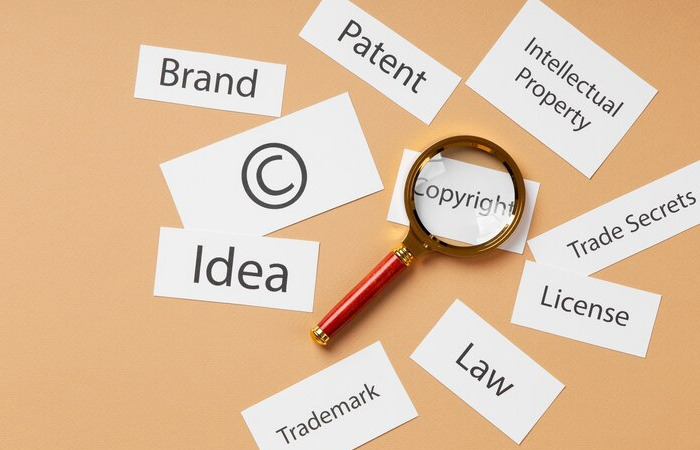The world is moving faster than ever, and so is technology. One of the most anticipated advancements in recent years is 5G technology—the fifth generation of mobile networks. 5G is set to revolutionize not only how we communicate but also how businesses operate. As 5G rolls out across the globe, its potential to unlock new opportunities for business and innovation is becoming clearer every day.
In this blog, we’ll explore how 5G technology impacts businesses, the industries benefiting the most, and the potential challenges that come with it.
What is 5G Technology?
Before diving into its impact on business, let’s take a quick look at what 5G technology actually is. In simple terms, 5G is the latest generation of mobile network technology. It’s designed to deliver faster speeds, lower latency (the delay in communication between devices), and greater connectivity than its predecessor, 4G.
While 4G provides download speeds up to 1 Gbps, 5G is capable of speeds exceeding 10 Gbps, which is about 10 times faster! The major promise of 5G lies not just in speed but also in its ability to support more connected devices simultaneously, without compromising performance.
How 5G Will Impact Business
-
Faster and More Reliable Connectivity
One of the biggest advantages of 5G is its speed. With faster data transfer, businesses can run more efficiently and with fewer delays. Cloud-based applications will run smoothly, allowing teams to access files and applications in real-time, no matter where they are.
For example, industries like finance and healthcare can leverage this speed for real-time data analysis and faster decision-making. In sectors like e-commerce, businesses will be able to offer more seamless online shopping experiences, enabling instant transactions and improved customer interactions.
-
Enabling the Internet of Things (IoT)
With 5G, businesses can connect far more devices than ever before, thanks to its enhanced capacity and low latency. This means that industries across the board will see a huge boost in the adoption of IoT devices.
For instance, smart factories will be able to operate more efficiently with interconnected machinery that can communicate with each other in real-time. In logistics, connected sensors can track the movement of goods with high precision, ensuring better inventory management and faster deliveries.
5G will open the door to a new era of smart cities, where everything from streetlights to public transportation can be controlled and optimized through connected technology. The possibilities for IoT integration are vast, and businesses that adopt 5G will be in a prime position to innovate in ways that were once impossible.
-
Empowering Remote Work and Collaboration
Remote work has become a norm for many businesses in recent years, and 5G will only improve the experience. With 5G’s ultra-fast speeds and lower latency, video conferencing, file sharing, and collaboration will be smoother than ever.
Imagine running virtual meetings in high-definition with minimal lag, or being able to collaborate on complex documents in real-time, no matter where team members are located. This improved remote work experience will not only increase productivity but also help businesses attract talent from anywhere in the world.
-
New Business Models and Innovation
With the capabilities of 5G technology, businesses can develop entirely new products and services. For example, augmented reality (AR) and virtual reality (VR), which require high data speeds and low latency to function well, will become mainstream for industries such as retail, entertainment, and education.
Businesses will be able to create interactive experiences, like virtual shopping or immersive training programs, which will enhance customer engagement and open up new revenue streams.
Moreover, 5G will fuel innovation in industries such as autonomous vehicles, healthcare, and manufacturing. Self-driving cars require near-instantaneous communication between the car and its surroundings, which 5G can easily handle. In healthcare, remote surgeries and telemedicine will become more efficient and reliable.
-
Improved Customer Experience
One of the key drivers of business success is customer satisfaction, and 5G will enhance the customer experience in many ways. With the increased speed and connectivity, businesses can offer faster and more responsive customer support through live chat, video calls, and AI-powered chatbots.
E-commerce businesses will benefit from faster loading times on websites and apps, ensuring customers have a smooth and enjoyable shopping experience. For media and entertainment, 5G will offer seamless streaming with higher quality, enhancing the consumer’s ability to watch movies, play games, or listen to music in real time, anywhere.
Industries Benefiting Most from 5G
Certain industries will benefit from 5G technology more than others, especially those that rely on high-speed data transmission and constant connectivity. Here are some sectors that are poised to reap the rewards of 5G:
-
Healthcare: 5G will enable faster remote consultations, real-time monitoring, and even surgeries performed by doctors miles away from their patients.
-
Automotive: Self-driving cars and connected vehicles will rely on 5G’s fast, low-latency connections to make split-second decisions.
-
Manufacturing: IoT devices powered by 5G will revolutionize smart factories, improving automation, quality control, and supply chain management.
-
Retail: The rise of AR, VR, and advanced e-commerce tools powered by 5G will enhance shopping experiences and customer engagement.
-
Entertainment: Faster streaming, VR/AR experiences, and immersive content will transform the entertainment industry.
The Challenges of Adopting 5G
Despite its immense potential, 5G adoption does come with a few challenges:
-
Cost of Infrastructure: Upgrading to 5G requires significant investment in infrastructure, including new cell towers, hardware, and equipment.
-
Data Security: With more devices connected through 5G, the risk of cyberattacks increases, so businesses must invest in stronger cybersecurity measures.
-
Regulation and Standards: Governments and regulatory bodies will need to ensure that 5G technology is used responsibly and fairly across all industries.


